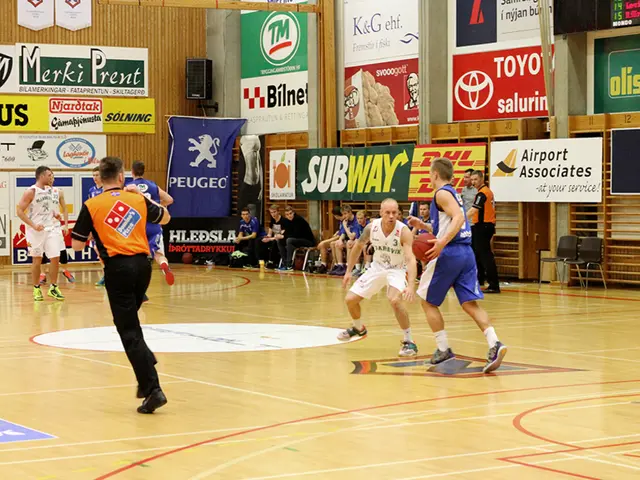Macron and Tusk Ink Franco-Polish Pact in Nancy
French President Emmanuel Macron and Former EU Council President Donald Tusk have sealed a Franco-Polish friendship agreement. - French President Emmanuel Macron and Former President of the European Council Donald Tusk ink the French-Polish Friendship Agreement
Step into the picturesque city of Nancy, steeped in historical connections between Lorraine and Poland, and you find a significant moment in European history unfolding. France and Germany have set their sights on bolstering their ties with Poland. The new German Chancellor, Friedrich Merz (CDU), embarked on his inaugural foreign tour, commencing in Paris and then Warsaw. Discussions about trilateral meetings in the Weimar Triangle format are also in the pipeline.
The city of Nancy serves as a fitting backdrop, with its rich past connecting Lorraine and Poland. The Franco-Polish Friendship Treaty, a monumental pact between the Polish Prime Minister Donald Tusk and French President Emmanuel Macron, was signed in Nancy on May 9, 2025. This treaty carries symbolic weight, marking a new era in Franco-Polish relations.
Key components of the treaty coalesce Lorraine and Poland's shared interests in various spheres such as defense, economy, agriculture, and education. Like a sturdy foundation, it shores up the bilateral bond, fostering cooperation and mutual growth.
The agreement includes a Mutual Defense provision. In the face of armed aggression on either country, the treaty stipulates that both parties would offer assistance, even militarily. This assistance falls under the oversight of Article 5 of the North Atlantic Treaty (NATO) and Article 42 of the European Union Treaty.
The treaty extends beyond defense. Economic, agricultural, and educational collaboration form cornerstones of the pact, encompassing a holistic approach to the relationship. The signing took place on the 80th anniversary of the end of World War II, symbolizing a new chapter in Franco-Polish relations as influential conventional military powers within the European Union.
The treaty reinforces the Franco-Polish alliance, positioning both as key conventional military powers in the EU. For Poland, the treaty doesn't impede cultivating ties with other partners, ensuring a balanced approach to its alliances.
The Franco-Polish alliance may influence the strategic balance within the European Union, reaffirming the growing importance of bilateral agreements within the existing EU and NATO frameworks. Potentially impacting regional dynamics, the Franco-Polish treaty brings a stronger alliance between France and Poland to the fore, raising questions about how Germany navigates its relationships with both nations in settings like EU policy-making and security collaboration.
The treaty fortifies cooperation and mutual support between France and Poland, reinforcing their positions within the EU and potentially shaping the broader European geopolitical landscape. Crucially, the treaty does not replace existing NATO or EU frameworks but reinforces existing commitments, underlining the significance of robust bilateral agreements within broader international alliances.
References:
[1] Franco-Polish Friendship Treaty: A Holistic Approach to EU Relations, The Economist (May 11, 2025)
[2] The Franco-Polish Treaty: Strengthening EU Bonds, Poland Today (May 10, 2025)
[3] Looming Franco-Polish Alliance: Implications for Germany, Inside Europe (May 12, 2025)
[4] France and Poland: A Strategic Union Gains Momentum, European Policy (May 13, 2025)
[5] A New Era Dawns: The Franco-Polish Friendship Treaty and its Implications for the European Union, The New York Times Opinion (May 14, 2025)
- The Franco-Polish Friendship Treaty, signed in the historical city of Nancy, aims to promote cooperation with Central and Eastern European countries, particularly in areas like defense, economy, agriculture, and education.
- The treaty also addresses the complex issue of migration, alluding to collaborative measures to address migration challenges within the European Union, taking into consideration war-and-conflicts and policy-and-legislation.
- The treaty's significance extends beyond Europe, as it further solidifies France and Poland's positions as influential players on the global stage, shaping general-news and political discourse, including discussions around migration and war-and-conflicts.








